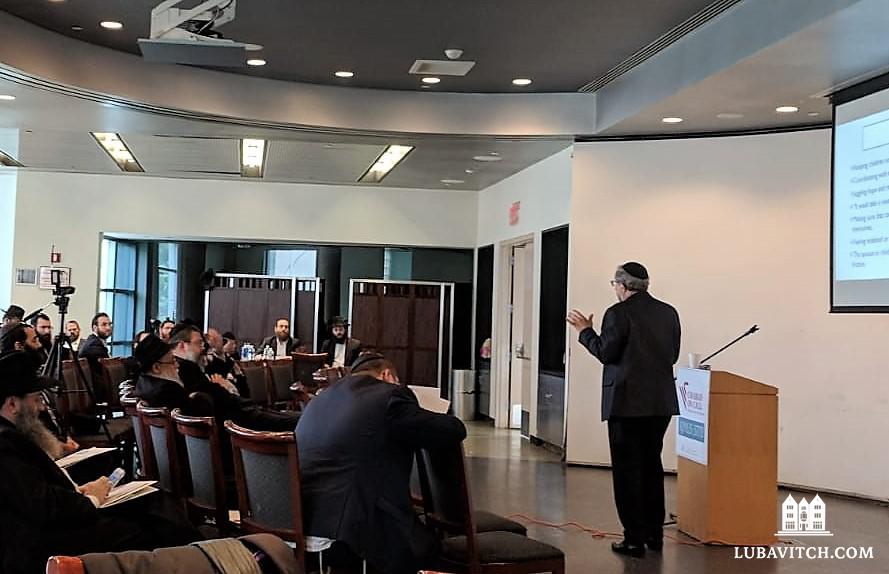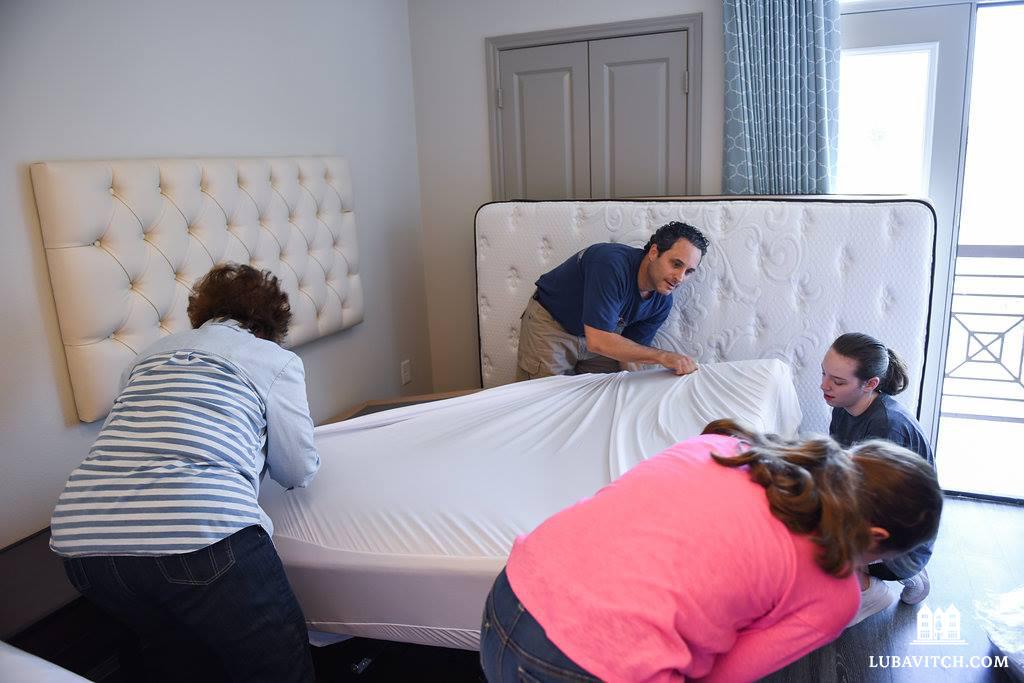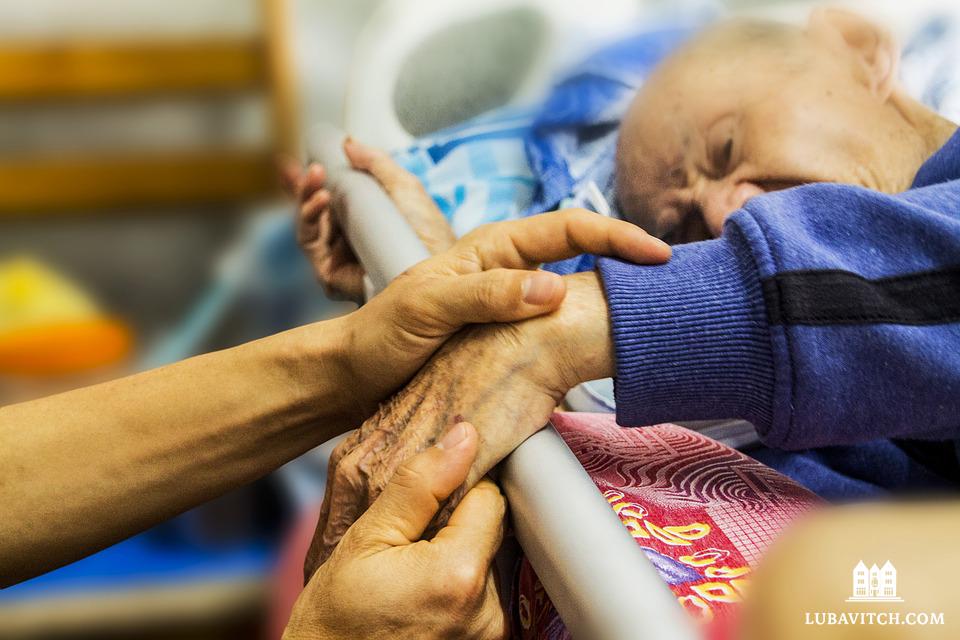Over 35 million people were admitted to a hospital in 2016 in the U.S.—many of them are Jewish. These days, no matter the hospital they are admitted to, they are likely to find a Chabad rabbi or rebbetzin on call.
Rabbi Yochanon Klein of Miami, Florida spends his mornings walking the local hospital halls—visiting with patients, distributing his iconic smiling emoji pillows, and bringing cheer and warmth to those in need. Having had personal experience with illness and extended hospitalization, Rabbi Klein and his wife Esti chose the hospital rabbinate over the pulpit and now direct Healing Hearts, a volunteer-based program offering support, kosher food and housing near medical facilities for patients and their families.
On Friday, June 15, Klein shared his story with sixty rabbis and chaplains, from as far as Australia, in the first annual Chicken Soup for The Rabbi on Call. A project of Chabad on Call—the comprehensive network and resource for hospital emissaries—the conference aimed to provide useful tools to help rabbi or rebbetzin called upon to counsel a terminally ill patient, offer best practices.
How does one help people say goodbye to their loved ones? What are the halachic implications for ending life support? How can one light Shabbat candles in a facility that prohibits igniting fires? These and other sensitive subjects were tackled by grief counselors and rabbis specializing in medical Torah law, covering pretty much every situation that arises for the chaplain. And not only professionals: fellow hospital rabbis, like Klein, shared their personal stories and tips.
Among the many resources Chabad on Call offered at the event—like specialty prayer pamphlets, psalms booklets and meaningful cards—a new cultural sensitivity course was introduced. Designed for rabbis to present to local medical staff, the course covers key topics like kosher and Shabbat restrictions, the Torah’s view on end-of-life, and the Jewish burial process. It includes beautifully designed slideshows, handouts, and marketing templates, all geared toward engendering an appreciation for, and understanding of, the Jewish patient population.
“Informative, interesting, relevant and complete with delicious food,” is how Rabbi Zalman Spitetzky of Chabad on Call – Baltimore described the conference. Participants are looking forward to the follow-up training and future conferences.
Mrs. Chani Goldberg, director of Chabad on Call, noted the effect the program had on the participants. “They really connected with each other—swapping anecdotes and tips—creating a network of rabbis who are all doing the same work in their respective communities. The event had an atmosphere of solidarity and the connections made here will be an invaluable support system for them when they return home.”
For more information: http://www.chabadoncall.com/
 Participants at the first annual Chabad on Call conference (June, 2018)
Participants at the first annual Chabad on Call conference (June, 2018)
 At the Aishel House in Houston, volunteers set up a bed for family members of those in hospitals
At the Aishel House in Houston, volunteers set up a bed for family members of those in hospitals

Be the first to write a comment.